
The Future Of Payments: Wallets And The Transformation Of Transactions
Wallet services will form the foundation of payment systems of the future. The significance of digital wallets is steadily increasing in a world without currency. With advancing technological standards, heightened security demands, or enhanced user experiences, the efficacy of these services will be contingent upon the providers’ ability to adjust to forthcoming developments. Gain insight into the fundamental elements and viewpoints of wallets within the dynamic realm of digital retail.
Welcome to the twenty-first century. The era has passed in which currency notes and coins were used to conduct retail transactions. Since the onset of the recent pandemic, it has become exceedingly uncommon to find currency in the purse of another individual. Conversely, research indicates that contactless payment methods have gained prominence, acceptance, and pervasiveness, particularly among the younger demographic of consumers. Real alternatives to bank cards and digital wallets have emerged at the registers of grocery stores, in the realm of business transactions, and the administration of assets.
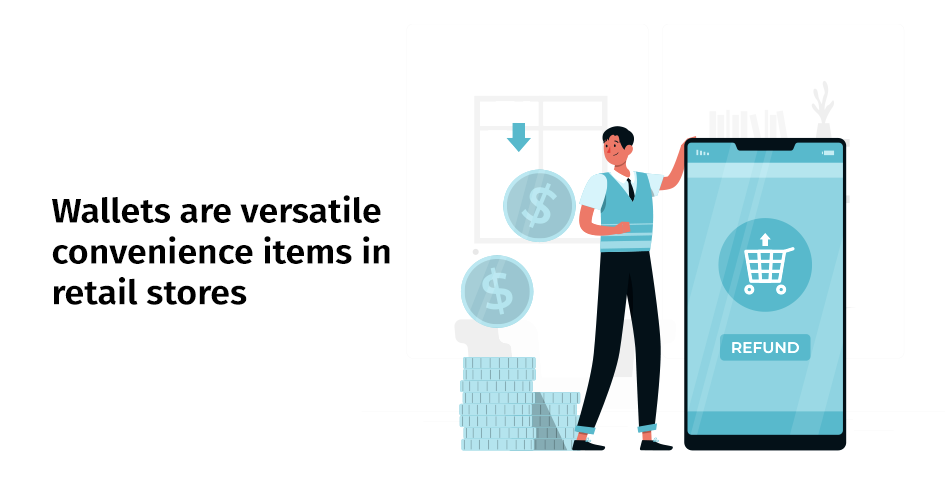
Wallets are versatile convenience items in retail stores
In contemporary retail, wallets have assumed an essential role due to their integration with digital currencies and payment systems, enabling users to transact with digital assets or acquire products and services with ease. By serving as the central repository for payment information, a digital wallet facilitates offline and online transactions through NFC contact with the reader. Wallets are frequently accessible via mobile applications; however, they can also be utilised as desktop or browser software programs. Certain platforms surpass the provision of payment information by facilitating peer-to-peer transactions, ATM withdrawals, and top-ups. They also can oversee exclusive offers, discount promotions, loyalty cards, and more. These contribute to increased sales, consumer loyalty, and an improved user experience.
Digital wallets manifest in various formats within the contemporary financial environment. Cryptocurrencies function as digital safes, enabling users to store, transmit, and receive their Bitcoins, Ethereum tokens, and other cryptocurrencies securely. Mobile wallets enable consumers to store credit or debit cards on their devices, facilitating contactless transactions in physical stores as well as online payments. This is efficiently executed in real-time, ensuring continued customer satisfaction.
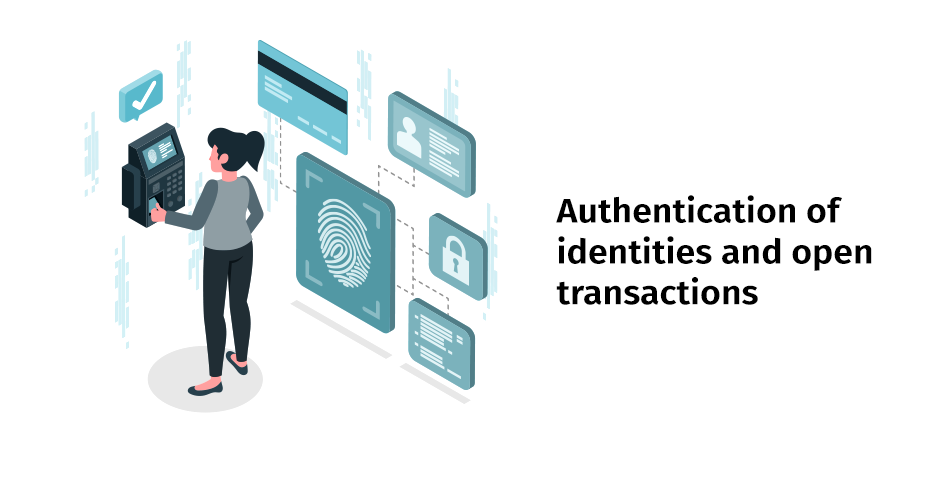
Authentication of identities and open transactions
In addition, proof of identity and age verification documents can be stored securely in digital wallets, which is particularly advantageous in regulated sectors like online wagering and alcohol distribution. Tokenisation, which involves the transformation of traditional physical or digital assets into digital tokens, is acquiring equivalent significance in the financial sector as a result of the increased demand for cryptocurrencies. The simplicity of sharing and swift transfer of the tokens contributes to an increase in their liquidity. Because they are typically stored on a blockchain, they always provide the user with complete visibility and traceability. These are applicable in dispute resolution and chargeback situations. Digital wallets establish elevated criteria for payment and transaction data, owing in large part to this, by providing sophisticated encryption and security mechanisms.
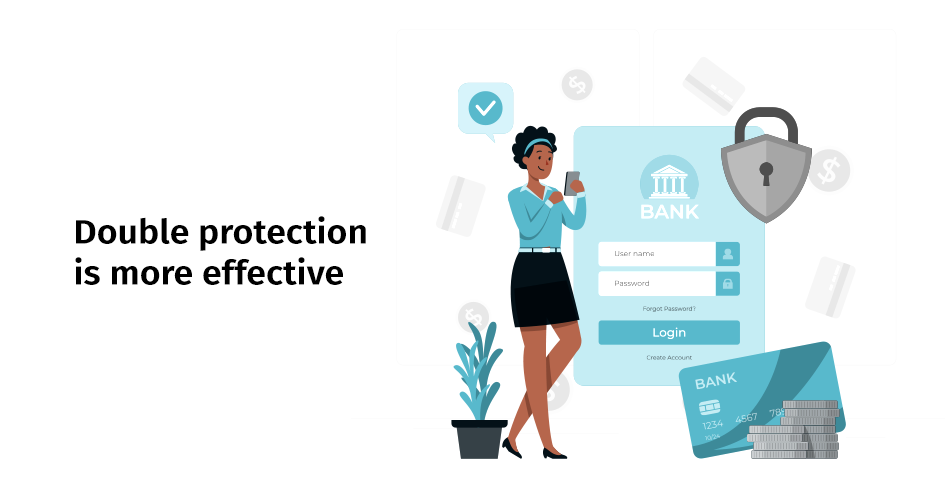
Double protection is more effective
Wallets used to convey sensitive and personal information during financial transactions necessitate the implementation of the most stringent security measures and standards. It is obligatory upon them to ensure the preservation of the financial assets’ confidentiality and integrity. For example, a private key is contained within each wallet and is required to access the assets. It is of the utmost importance to always safeguard this private key from unauthorised access. In contrast, it is possible to transfer funds into the wallet using a public key. The publication can be executed securely, provided that no single entity possesses exclusive access to the wallet.
Wallets also utilise data encryption, multi-factor authentication, and passwords, among other security features and protocols. Hardware wallets offer supplementary security measures through the offline storage of private keys, thereby significantly impeding unauthorised access by hackers in the absence of an Internet connection. In addition to routine security updates and awareness of potential security threats, this is also ensured. However, the user bears the principal obligation for security and must take meticulous measures to safeguard sensitive data and financial access.
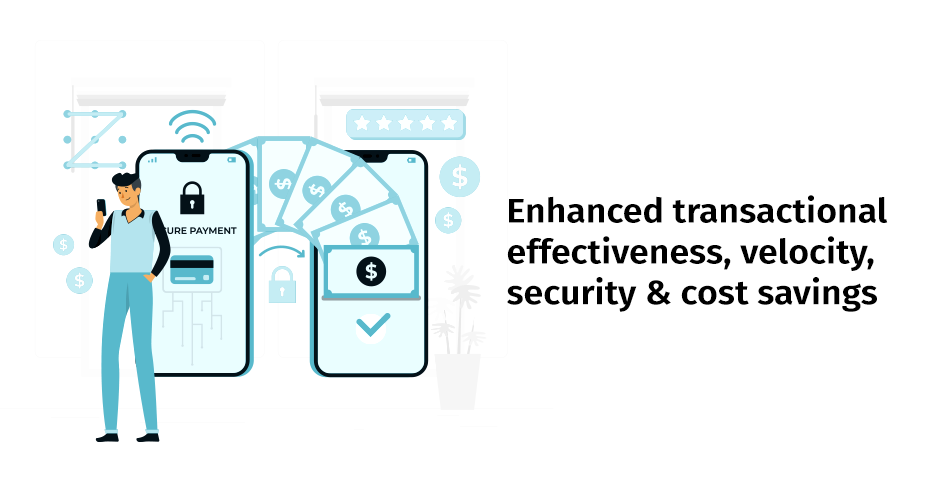
Enhanced transactional effectiveness, velocity, security, and cost savings
Digital wallets and services facilitate cross-border remittances and international commerce in a significant way. In contrast to conventional bank transfers, these cross-border transactions involve real-time payments that also adhere to cross-border regulations. As a result, international trade procedures and payments to suppliers can be executed more efficiently and effectively. Some wallets convert currencies automatically, thereby obviating the need for substantial fees. In contrast to conventional services like Western Union, wallets provide businesses and consumers with reduced transaction fees.
Wallet security features additionally fortify confidence in global commerce and reduce the likelihood of fraudulent activities. Wallets that are accessible through mobile applications or online platforms are user-friendly and promote financial inclusion. Users can engage in international transactions, for instance, without the need for a bank account.
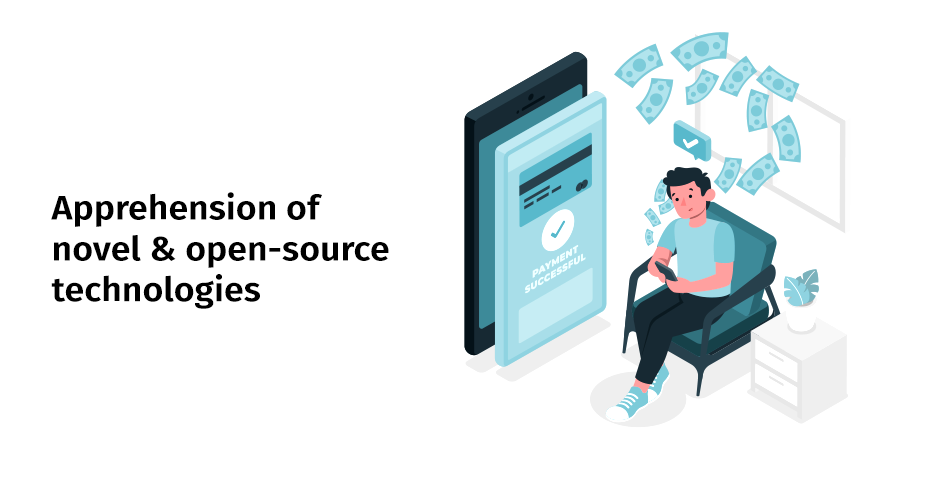
Apprehension of novel & and open-source technologies
Wallet services will thus become essential for a multitude of target demographics in the coming years, particularly in terms of scalability, availability, security, and integration. Thorough API documentation and seamless integration are equally critical factors in the IT sector as comprehensive details regarding scalability, encryption technologies, security infrastructure, and encryption mechanisms. The relevance of blockchain integration and information regarding the support of multiple protocols is growing. Moreover, intelligent transaction and data analysis, predictions, and AI-supported customer support are gaining importance in the field of artificial intelligence (AI). Sectors such as retail and financial services, where industry-specific customisation, loyalty programmes, and mobile payment solution integration are critical, place this emphasis on a significant degree of importance. In this regard, the criteria, and benchmarks that wallet services are obligated to follow are unambiguously delineated.

The difficulty of achieving interoperability and progress
However, the implementation of purses in diverse domains often gives rise to complications and apprehensions. One of the primary concerns is security, as wallets are vulnerable to various threats including phishing attacks, malware, and data loss. Therefore, security measures must be updated and continuously improved to resolve any potential vulnerabilities.
Furthermore, wallet providers are obligated to adhere to stringent regulatory standards, specifically those pertaining to identity verification and anti-money laundering. Furthermore, compatibility issues may arise due to the lack of interoperability between wallets from various providers, which hinders customers’ ability to utilise them seamlessly. In conclusion, the incorporation of cryptocurrencies into wallets presents distinct obstacles, such as the requirement for a foundational comprehension of blockchain technology, price volatility, and legal ambiguities. A thorough examination of these factors is necessary to maximise the advantages of purses while minimising potential hazards.
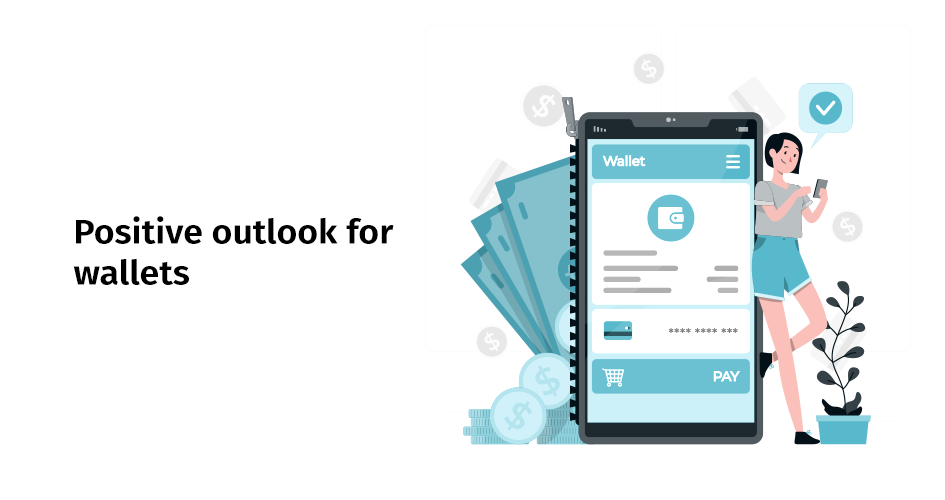
Positive outlook for wallets
The industry will continue to be propelled by continuous innovation, as wallet providers consistently introduce new features to satisfy consumer demands. These functionalities encompass contactless transactions, mobile wallets, and digital identity management. Notably, the latter will witness the implementation of services like health cards and online identification cards. Wallet providers are anticipated to make growing investments in innovative security technologies to enhance customer confidence and thwart fraudulent activities. Wallets may ultimately transform into all-encompassing financial services platforms, including investments, insurance and loans, along with payment functionality. It would further streamline the process of financial integration for users.
Conclusion
In conclusion, the trajectory of wallet services in the coming years is contingent upon the capacity of providers to not only address technological advancements and security demands but also to enhance the user experience. Wallets are of paramount importance in contactless and digitally oriented commerce, where they are used to complete commercial transactions.
How Can Datavision help?
We assist various financial institutions and global banks on their digital transformation journey. Our one-of-a-kind approach, which combines people, process, and technology, expedites the delivery of superior results to our clients and drives excellence. Several reputed companies leverage our proprietary suite of business excellence tools and services to unlock new growth levers and unparalleled ROI.
Datavision stands proudly as a prominent banking software solutions provider, recognized for our unwavering commitment to excellence in the industry. We have earned our esteemed reputation by consistently delivering cutting-edge core banking software, catering to the needs of both retail and corporate banking software sectors. At Datavision, our mission is clear: to provide our clients with the best banking software products, ensuring that they stay ahead in an ever-evolving financial landscape. We take pride in serving our prestigious clients and look forward to continuing our journey of innovation and excellence.
Our portfolio of banking software product and services include:
Core Banking Solutions: | FinNext Core | Banking: | FinTrade | EasyLoan | MicroFin |
Digital Banking Solutions: | IBanc | MobiBanc | MBranch | FinTab | FinSight |
Risk & Compliance: |FinTrust |
Want to know how our team of experts at Datavision provides customizable, scalable, and cost-effective banking software products and solutions to our esteemed clients? Visit us for more information.